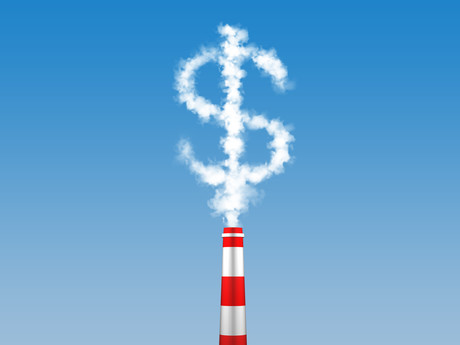UNSW's carbon tax plan returns revenue to voters

UNSW Sydney has developed a new policy to address climate change, known as the Australian Climate Dividend Plan (ACDP), which involves taxing CO2 emissions and returning the revenue to all voting-age Australian citizens.
Developed by Professors Richard Holden and Rosalind Dixon, co-leads for the UNSW Grand Challenge on Inequality, the plan was presented last night at an event with Member for Wentworth Professor Kerryn Phelps.
The plan outlines a comprehensive market-based approach to making energy in Australia more affordable and reliable, by an introduction of a universal carbon tax of $20–$50 per ton for all carbon emissions in Australia. The revenue generated would be returned to all adult Australian citizens, who would potentially see a tax-free payment of approximately $1300 each per annum.
Prof Holden said the ACDP is modelled on similar proposals developed in the US by the Climate Leadership Council.
“It’s a method we know works — albeit sometimes a hard sell,” he said. “The key to our proposal is that it not only provides strong market-based incentives to reduce our carbon emissions, it addresses the economic wellbeing of low-income Australians — previously a barrier to developing a meaningful policy response to climate change.”
The report serves to address concerns about what effective action on climate change would mean for the economic wellbeing of low-income Australians, their access to affordable transport and energy, and the competitiveness of Australian industry.
“Our carbon dividend approach bridges the left-right divide on climate policy,” said Prof Holden. “It is at once conservative and progressive and provides a workable solution that will appeal to all sides of the political spectrum.”
One option canvassed in the ACDP is to phase in the carbon dividend, beginning at $20 per ton and increasing by $5 each year to $50. This should leave more than three-quarters of Australians better off financially, even if they did not change their consumption or energy use.
Australian industry would remain competitive, the plan’s developers said, as Australian exporters to countries without a carbon tax would get a rebate for taxes paid. In addition, a fee would be charged based on the carbon component of exported goods to Australia from other countries that do not have a carbon tax — creating an incentive to produce less carbon or adopt a tax themselves.
The plan would also see the rollback of subsidies for renewables and similar measures, which are unnecessary with the tax on carbon. This could save the government more than $2.5 billion annually.
UNSW engaged Prof Phelps on the policy, knowing she is focused and passionate about addressing climate change. She noted, “The people of Wentworth — and I think Australia generally — want decisive action on cutting greenhouse emissions and a carefully considered plan to transition the economy from fossil fuels to renewables.
“At this stage, I’m not being overly prescriptive on the best pathway to achieve better climate change policy, but listening to the views of experts such as Professor Holden and Professor Dixon helps to inform me on developing the best policy settings to lead us to a clean energy future.”
Please follow us and share on Twitter and Facebook. You can also subscribe for FREE to our weekly newsletter and bimonthly magazine.
Berrima Cement Works upgrades with sustainable tech
Boral has unveiled new carbon-reducing technology at the site, which supplies 40% of cement in...
Australian orgs partner to speed circular economy
GS1 Australia has joined forces with the Product Stewardship Centre of Excellence to drive the...
Victorian utility recognised at Asian Water Awards
South East Water won two awards for its Hydrotrak Geofencing technology, which has helped it to...







